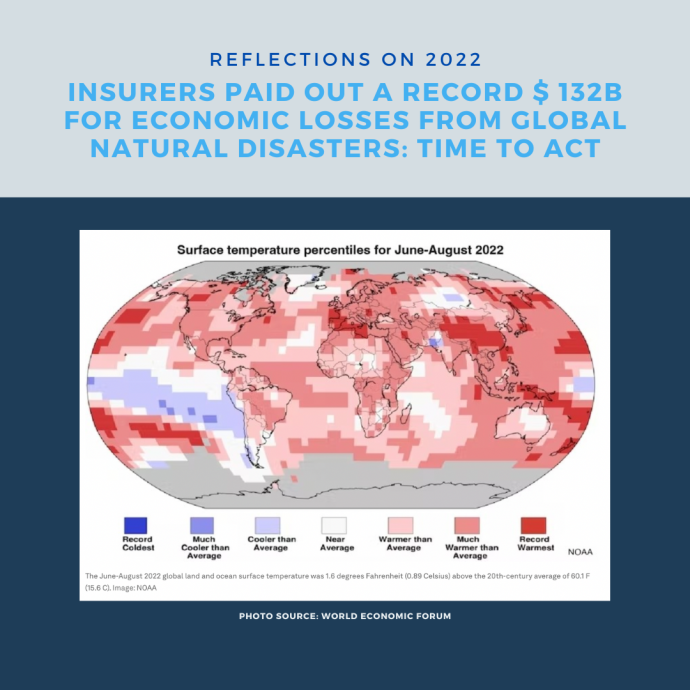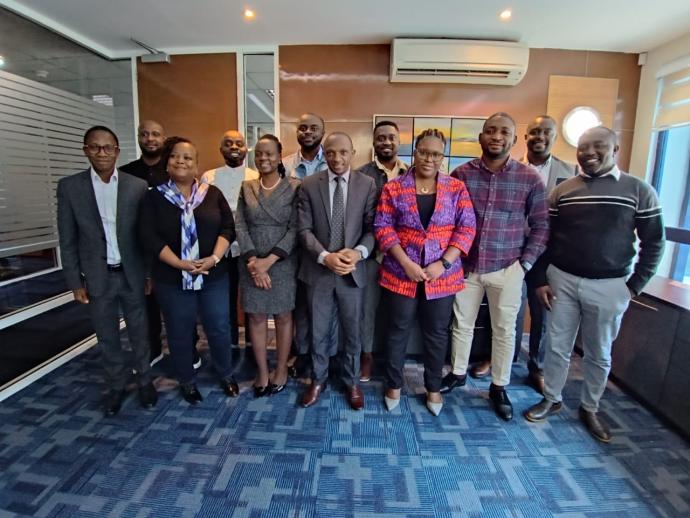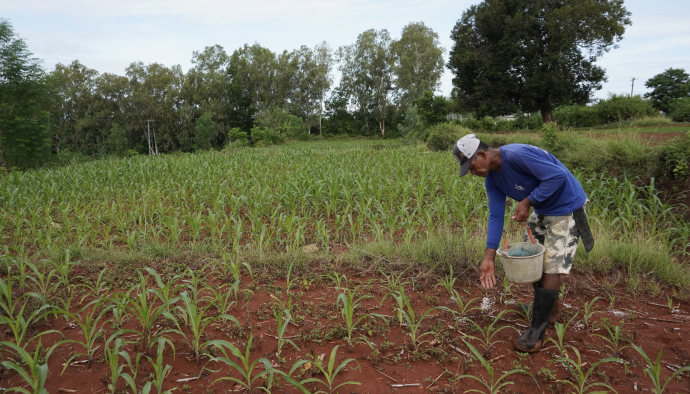31
Jan
AON(1) estimates that economic losses from global natural disasters in 2022 reached $ 313 billion. Of these, insurers covered $132 billion: ranking 2022 as the fifth costliest year for insurers on record. The range of extreme weather events included floods, droughts, earthquakes, typhoons and heatwaves. Floods were the deadliest and accounted for 88.4 per cent of total deaths globally(2). As a snapshot: in Pakistan floods affected 33 million people and caused 1,739 deaths while in Bangladesh and India floods affected 7.2 million and 1.3 million people, respectively. Though on a smaller scale





